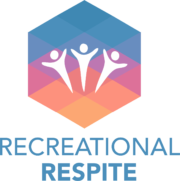People living with lifelong disabilities are now living longer than expected, and are now embarking upon another life transition – the aging process. They should be able to do so with dignity; this includes having access to all information and resources, having the choice of living at home with appropriate supports and services versus living in long term care facilities, accessing educational programs on health and nutrition, fitness programs and those designed to decrease social isolation as it relates to aging with a disability.
In the past getting older was a not as large of an issue for people with disabilities as it is now, so how well will we live as we age? Now, people with disabilities are asking questions about the quality of our living and the quality of our aging. It is important that we keep ourselves as informed as possible on wellness, self care, health care, exercise and advocacy.
Secondary medical conditions such as respiratory illness, renal failure, accidents, infections, and depression, coupled with a general lack of adequate primary medical care, prevented most persons from experiencing their true life expectancy.
The “AGING WITH A DISABILITY WORKING GROUP” is comprised of consumers and representatives from the cross-disability community who want to be able to anticipate the type, severity and course of age-associated changes focusing on experiences of aging. Through a consumer approach, we want to help identify what to expect, what preventative steps can be taken to ease the effects of aging on disability, how to translate living longer into living better and actively, how to prevent losing our achieved independence, and what to do to delay new conditions and increasing disability. We want to support aging consumers in mitigating risk factors (including effective use of assistive technology), accessing helpful resources that will offer knowledgeable review, assessment and intervention, and find options and choices regarding fitness, physical, social and financial options.
We intend to produce and promote change in civil society including government to integrate improvements and implementation of supports and services to ease the aging process for persons living with disabilities. This will be done through conducting a literature review of existing research, conducting consumer and service provider surveys, and raising awareness with a view to develop an action plan.
For more information, please visit Centre for Independent Living in Toronto
